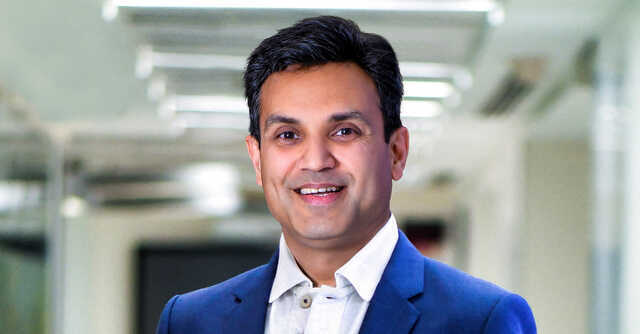
Microsoft launches programme to help Indian startups deploy AI at scale


India’s burgeoning startup ecosystem wants to leverage artificial intelligence (AI) in core business operations. To assist and ensure they have
access to the right AI resources, partnerships, and guidance to deploy AI at scale, Microsoft has launched a new startup programme called AI
Innovate.
Microsoft has also launched an AI Playbook that will serve as a guidance tool to help startups adopt AI.
“AI is becoming mainstream, and our own AI startup ecosystem is leading this change. India has the third-largest AI startup ecosystem in the
world. AI adoption can add more than 90 billion US dollars to the Indian economy by 2035,” said Anant Maheshwari, president, Microsoft India at the AI Innovate virtual conference.

Rohini Srivathsa, national technology officer, Microsoft India believes, every startup is already an AI startup.
“Whether it is healthcare, financial services, e-commerce, education, manufacturing, agriculture, every startup is leveraging AI in some way or the other, whether it is for customer experience, credit rating, predicting crops, or optimizing supply chains,” she added.
AI Innovate is one of the many startup accelerator programmes by Microsoft in India. Their programmes for agritech startups and healthtech startups are helping startups from respective industries to build solutions and scale them.

The objective of the programme
According to Maheshwari, AI Innovate programme aims to empower startups to achieve meaningful innovation at scale. It will help build business and industry expertise in AI, build relevant scenarios working with Microsoft industry research and engineering experts, give them the opportunity to future proof skilling in AI and ML, and provide opportunities for mentorship with Microsoft and industry experts.
“This is just a series of programmes and interventions that will serve startups as they begin their AI journey,” he added.

The 10-week AI Innovate programme will start as a quarterly cohort in November in partnership with TiE Mumbai.
Startups from all major sectors including financial services, healthcare, education, agriculture, space, manufacturing and logistics, retail and e-commerce are invited to participate in the first cohort of the programme.
Maheswari pointed out, in the first three months of this programme, we will focus on the BFSI and the manufacturing and logistics as the first two cohorts.

How does it benefit startups?
The programme will classify startups into three categories based on their size, funding, and status of solutions and will vary the benefits of the program accordingly.
All startups: This includes all startups that have qualified for Seed to Series B fundings. They will get technical support including access
to Azure tools with free cloud credits, product engineering support, unlimited 24×7 technical assistance, and support for business and sales acceleration including marketplace onboarding.

Co-sell startups: Focused on helping startups build and sell their AI-based solutions, this category includes startups with enterprise-ready
solutions. They will be assisted to build their solutions along with go-to-market support and co-selling benefits with Microsoft’s sales team and partner ecosystem.
These startups will also get invited to Microsoft’s top partner and customer events where they can connect and grow their network.
Co-build startups: The third category is aimed at helping startups envision their solutions with help from industry experts. The idea is to build a future-ready solution with guidance from AI professionals and partner experts and see if it can be enhanced.

“Our vision is to help every startup in every industry turn meaningful innovation into actionable results. It's really important to support the ecosystem, with the right programs, tools, and skilling,” added Maheshwari.
Inculcating a culture of AI for good
Building AI that is responsible, fair and doesn’t discriminate against the marginalized communities is one of the top priorities for big tech
companies due to continued pressure from privacy and rights advocates and the impending AI regulations.
Early this year, the EU had proposed a draft to regulate the supply and use of AI.
Maheshwari weighed on the significance of building AI solutions that can be trusted.
“We need to develop AI in a way that is responsible and fosters trust as creators, users and advocates of technology. It is important for us to make careful choices, so that technology ultimately translates into benefits and opportunities for all,” he added.
